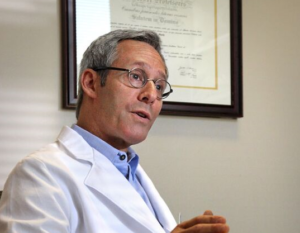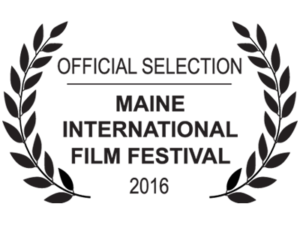FOR IMMEDIATE RELEASE: June 23, 2016
CONTACT: John Kramer, (703) 682-9320 ext. 205
U.S. Department of Health and Human Services Proposed Rule Would Block Compensation for Life-Saving Bone Marrow Donors
Nobel Winners and Others Call for Compensation, Saying it is Both Medically Sound and Ethically Proven
Arlington, Va.—A rule proposed three years ago and then not acted upon by the U.S. Department of Health and Human Services designed to merely protect the status quo may well be costing thousands of American cancer patients their lives.
The U.S. Department of Health and Human Services is considering a rule to undo a lifesaving 2012 court ruling which allowed compensation for bone marrow donors. The Institute for Justice, which won the victory in court on behalf of cancer patients from across the nation, along with Nobel prize winners and other prominent thought-leaders in the medical field oppose the proposed new regulations. IJ’s victory in Flynn v. Holder made clear that it is legal to offer compensation to most bone marrow donors. HHS’s effort, however, would reverse the ruling and re-instate a decades-long ban on donor compensation.
“Every day, people die while waiting to find a compatible bone marrow donor,” explained IJ Senior Attorney Jeff Rowes, lead counsel for the plaintiffs in Flynn v. Holder. “The goal of our lawsuit was to enable researchers to find out if donor compensation would lead to more donors. Our victory made that possible, but now HHS once again wants to make it a felony punishable by up to five years in prison just to do basic research on a promising, lifesaving initiative.”
HHS closed its commentary period about the new law in December 2013 and for the past nearly three years has remained utterly silent on the subject, delaying model programs designed to see if compensation will both broaden the bone marrow donor pool and deepen it by encouraging more people not only to sign up for the bone marrow registry, but to donate when called upon. It is not well known, but approximately half of those who are told they are a bone marrow donor never show up when called upon, often leading to the death of the would-be recipient. The government is expected to either adopt or abandon the proposed rule by December 2016.
The original landmark case began in October 2009 when the Institute for Justice filed suit against the U.S. Attorney General on behalf of cancer patients, the parents of children with deadly diseases, a renowned bone marrow doctor, and a nonprofit group to challenge the prohibition on compensating bone marrow donors set forth in the National Organ Transplant Act (NOTA) of 1984. NOTA made it a serious crime to compensate someone for a human organ for transplantation. The Act defined bone marrow as an organ.
In a ruling that became final in the summer of 2012, however, the 9th U.S. Circuit Court of Appeals ruled that the ban on donor compensation could not be applied to the most common method of marrow donation. Most modern bone marrow transplants now occur using a technique that extracts marrow cells from the bloodstream rather than the traditional method of donation from the hip bone. Because this technique is almost identical to the technique used by donors of other blood parts like plasma, the court held that Congress could not have meant to include it when it banned compensation for “organs.”
Under the new regulations, though, this ruling would be reversed. The Department of Health and Human Services has proposed a rule that would define “organ” to include marrow cells donated through the bloodstream, effectively re-imposing the ban on compensation.
“The federal government’s proposed rule is illegal and unconstitutional because it is based on a falsehood,” said Rowes. “Cells taken from your bloodstream aren’t ‘organs,’ which is why no one has ever thought NOTA prohibits paying people for platelets. The Constitution does not allow government agencies to simply redefine words in order to grant themselves more power.”
The proposed regulation would ban marrow compensation just when empirical research has begun into the effects of compensating donors. A team of economists—Nicola Lacetera of the University of Toronto, Mario Macis of Johns Hopkins University, and Robert Slonim of the University of Sydney—were in the process of finalizing a research proposal that would have investigated the effects of donor compensation when they learned of the new rule.
“These new regulations make it impossible for researchers to obtain the necessary evidence to inform policy. Our proposed studies would be made illegal by these new provisions,” explained Macis, who, along with Lacetera and Slonim, has published some of the leading work showing that economic incentives can be effectively used to increase blood donations without affecting blood supply safety. “Properly designed compensation for bone marrow donors could similarly lead to significant increases in donations, thus giving potentially hundreds or thousands of people in need of a transplant every year a greater chance of survival. At a minimum, the federal government should not make it illegal for researchers to find out whether incentives can help address the shortage of bone marrow donors.”
Sixteen noted economists, including professors Lacetera, Macis and Slonim, submitted a letter to HHS stating, in part, “The proposed ban will prevent the most policy relevant academic research that is critically needed to determine whether and how economic incentives can be used to save lives.”
“I don’t think that anybody should go to jail just for trying to save somebody’s life,” added Doreen Flynn, who has three children with Fanconi anemia, a blood disease that frequently requires a bone marrow transplant and who was the lead plaintiff in the original lawsuit. “If paying donors results in more marrow donations, we should pay them. And it shouldn’t be a crime to investigate it.”
Flynn’s story inspired the emotional 16-minute short narrative film “Everything,” which has earned laurels from numerous film festivals across the nation.
“We know what doesn’t work,” said Robert McNamara, also a senior attorney with the Institute and co-lead counsel in the case. “We have 30 years of experience with an altruism-only marrow-donor program, and we know that has not succeeded in recruiting enough donors. The only question is whether offering compensation can achieve better results. We will not allow the federal government to make it a felony to find out the answer. Hopefully, we will do that by persuading the government not to adopt this rule, but if we have to, we will sue them again. And we will win—again.”
[NOTE: To arrange interviews on this subject, journalists may call John Kramer, IJ’s vice president for communications, at (703) 682-9320 ext. 205.]













